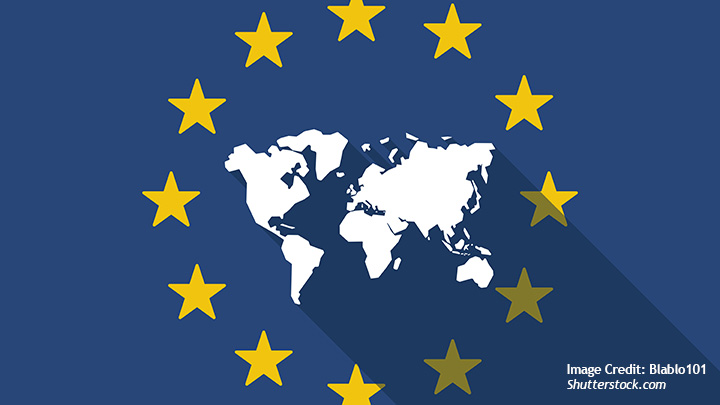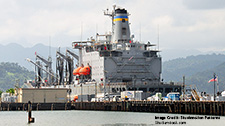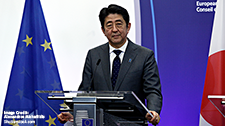Quad Plus EU: A Viable Option for the Times?

Jagannath Panda
Today, the primary Indo-Pacific contest is not just about the China-US hegemony. It also involves a range of so-called “middle powers” – including Australia, France, Germany, India, Indonesia, Italy, Japan, the Netherlands and South Korea, among others – coming to terms with their own global ambitions and objectives, and being compelled to secure their economic concerns (e.g. maritime trade routes) in an unstable region. Therefore, it is as much about “preventing Chinese hegemony while avoiding catastrophic conflict”, as it is about forcing the US to reconfigure its alliances and partnerships in a region that is an economic and political hotspot.
Against this context, relationships between “like-minded” partners, whether through shared values or interests or narratives, become very important. Much has been written about the “rise of the minilaterals” in the Indo-Pacific in the era of multipolarity. These largely “ad hoc” groupings between a limited number of states/entities without institutionalised ties are drawn from their strong bilateral ties. In an era of ineffective and inefficient multilateralism where the institutions are digging their own graves by refusing to reform or adapt to the current diverse milieu, smaller groups focus on national interests and attempt to avoid the complications inherent in a larger multilateral setup. Out of a number of still-emerging such mechanisms, two stand out: the Quadrilateral Security Dialogue (Quad) comprising the democratic states of Australia, India, Japan and the United States; and the AUKUS defence pact between Australia, the United Kingdom, and the United States. Notably, both are US-led or US-centred.
However, as the debate around middle powers assuming greater responsibilities is gaining ground and the Indo-Pacific middle powers themselves are diversifying their own autonomous networks, the quest for balancing parties continues. European entities including the European Union (EU), its members and the UK are being seen as important partners. According to the recently published State of Southeast Asia 2023 survey report, the EU is the most preferred “third party” ahead of Japan and India and seen as a defender of free trade and international law, with trust in the EU as an economic and political actor increasing substantially.
At the same time, although the EU and its member states have had long-standing ties in Asia – bilaterally with states like India and Japan, multilaterally through the Association of Southeast Asian Nations (ASEAN), and via a decade-long engagement in non-traditional security avenues like counter-piracy operations in the (primarily western) Indian Ocean – most Asian states see the EU as a non-player in the regional security architecture. Moreover, there is also concern that Europe’s lack of internal unity may hamper the efforts needed to counter the ill effects of US-Chinese competition.
Hence, with the increasingly fraught equations between states globally, especially post Russia’s invasion of Ukraine, will the EU remain a concerned spectator or shed inhibitions about its strategic intentions, even if they seem relatively confrontational, in the Indo-Pacific? Can Europe’s favoured status among ASEAN states and its growing tilt towards Quad inspire states like Indonesia and Vietnam – who are warming up to the Indo-Pacific construct due to increasing tensions with Beijing in the South China Sea – to consider becoming “Quad Plus” partners?
This chapter by Jagannath Panda is published in ISPI’s special publication titled The EU Indo-Pacific Bid: Sailing Through Economic and Security Competition published on April 27, 2023.
Related Publications
-
ISDP Annual Report 2023
ISDP’s Annual Report for the year 2023. We look back on 2023, a year in which tensions and conflicts captured the strategic space in ISDP’s focus areas, making headlines around […]
-
India-Japan-Philippines: A Strategic Maritime Trilateral or More?
Regional states like India, Japan, and the Philippines have been seeking cooperative solutions with other middle powers that can both counter the Chinese influence and fulfill other economic as well […]
-
Engaging The Indo-Pacific: Some Pointers For Europe
The regional dynamics of the Indo-Pacific Region (IPR), especially maritime security-related, are distinctly different from other regions, especially Europe. There are existential sub-regional dynamics that vary across the IPR, which […]
-
Navigating the Indo-Pacific: How Australia and the EU Can Partner for Peace, Stability, and Prosperity
To navigate the choppy waters of the Indo-Pacific, the EU and Australia must be on the same wavelength regarding shared interests in rules, values, and an open and liberal economic […]
-
Strong Europe-Japan Relations are a Legacy of Shinzo Abe
Abe was a firm proponent of strengthening a free, open and rules-based Indo-Pacific. Not only was he steering Japan away from total dependence on the U.S. for its security, but […]




